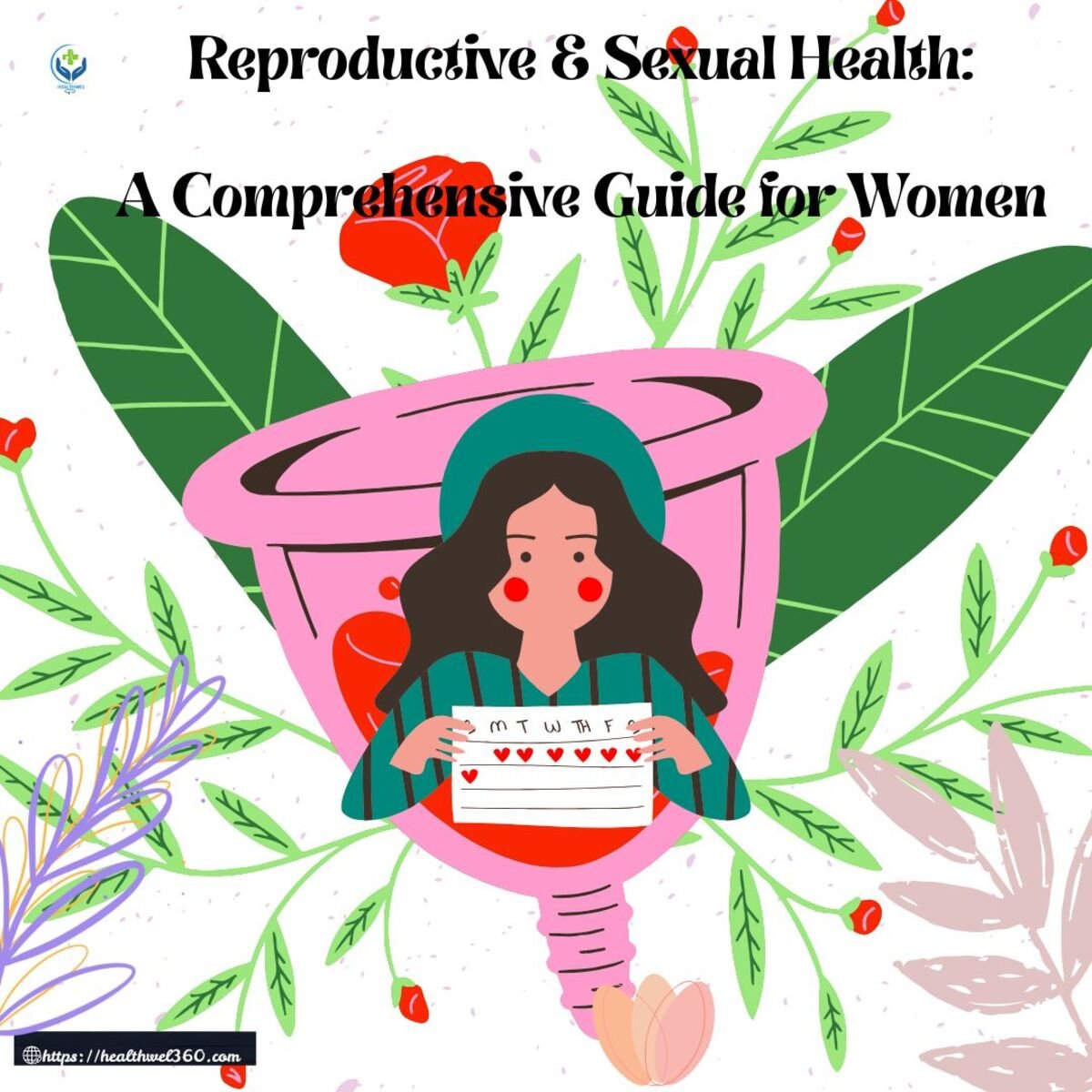Reproductive & Sexual Health: A Comprehensive Guide for Women. Fertility and sexual health are critical components of overall health for women at all stages of life. From menstruation to menopause, understanding your body, recognizing potential health concerns, and making informed choices can significantly impact your quality of life. This guide covers key topics, including menstrual health, contraception, fertility, pregnancy, menopause, and sexual wellness, providing evidence-based insights to help women take control of their health.
A healthy menstrual cycle is a vital sign of reproductive health. However, many women experience irregularities or conditions like:
Common Menstrual Disorders
- Polycystic Ovary Syndrome (PCOS): A hormonal disorder causing irregular periods, cysts on ovaries, and insulin resistance.
- Endometriosis: A painful condition where uterine tissue grows outside the uterus, leading to severe cramps and infertility risks.
- Dysmenorrhea (Painful Periods): Can be primary (normal cramps) or secondary (due to conditions like fibroids).
- Amenorrhea (Absent Periods): Caused by stress, excessive exercise, or hormonal imbalances.
Tips for a Healthier Menstrual Cycle
- Track your cycle using apps.
- Exercise regularly to reduce cramps.
- Consider a medical professional if you are experiencing severe discomfort or abnormalities.
There are various contraceptive methods, each with pros and cons:
Hormonal Methods
- Birth Control Pills: Regulate hormones but may cause side effects like nausea or mood swings.
- IUDs (Hormonal & Non-Hormonal): Long-term, effective, but may cause cramping initially.
- Implants & Injections (e.g., Nexplanon, Depo-Provera): Convenient but may affect bone density with long-term use.
Non-Hormonal Methods
- Barrier Methods (Condoms, Diaphragms): Protect against STIs but require consistent use.
- Fertility Awareness Methods (FAM): Tracks ovulation but requires diligence.
- Copper IUD: Hormone-free but may increase menstrual bleeding.
Emergency Contraception
- Copper IUD Insertion: Can act as emergency contraception if placed within 5 days.
Whether planning pregnancy or simply monitoring fertility, understanding ovulation and reproductive health is key.
Boosting Fertility Naturally
- Track ovulation with basic temperature of the body (BBT) or fertilisation predictor kits.
- Reduce stress through yoga or meditation.
- Avoid smoking, excessive alcohol, and caffeine.
When to Seek Help
- If you’re under 35 and had been trying for over a year without success.
- If you have irregular cycles or known conditions like PCOS.
A healthy pregnancy starts before conception and continues after birth.
Prenatal Care Essentials
- Take folic acid supplements prior to and during the first trimester to avoid birth abnormalities.
- Attend regular prenatal check-ups.
Postpartum Recovery
- Physical Recovery: Healing from delivery, managing postpartum bleeding, and pelvic floor exercises.
- Mental Health: Watch for postpartum depression (PPD) symptoms like extreme sadness or detachment.
- Breastfeeding Support: Seek lactation consultants if facing challenges.
Menopause (typically between 45-55) brings hormonal shifts leading to symptoms like:
- Hot flashes & night sweats
- Vaginal dryness
- Mood swings & sleep disturbances
Managing Menopause Naturally
- Diet: Phytoestrogen-rich foods (soy, flaxseeds).
- Exercise: Strength training to prevent bone loss.
- Hormone Replacement Therapy (HRT): Discuss risks/benefits with a doctor.
Sexual health is more than just avoiding STIs—it’s about pleasure, consent, and body awareness.
Common Concerns
- Low Libido: Often linked to stress, hormonal changes, or relationship issues.
- Painful Intercourse (Dyspareunia): Can result from dryness, infections, or pelvic floor dysfunction.
- STI Prevention: Regular screenings and safe sex practices (condoms, PrEP for HIV prevention).
Improving Sexual Wellness
- Communicate openly with partners about needs.
Conclusion
Reproductive and sexual health is a lifelong journey. By staying informed, seeking medical advice when needed, and prioritizing self-care, women can maintain optimal health at every stage. Whether managing menstrual disorders, choosing contraception, or navigating menopause, knowledge empowers better decisions.
